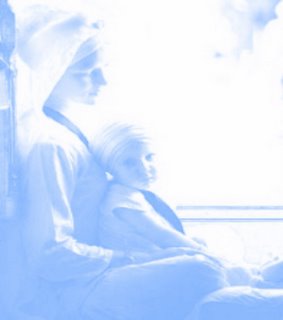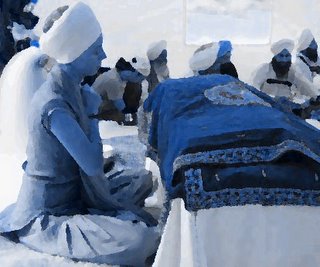In Hope of Equality

 Greek philosophers thought a "woman is an unfinished man left standing at a lower step in the scale of development. The male is by nature superior and female inferior. The one is the ruler and the other ruled. Woman is weak of will and, therefore incapable of independence of character and position." Such prejudices prevail even today. On the threshold of a new millennium the status of woman is still to be elevated to that of man.
Greek philosophers thought a "woman is an unfinished man left standing at a lower step in the scale of development. The male is by nature superior and female inferior. The one is the ruler and the other ruled. Woman is weak of will and, therefore incapable of independence of character and position." Such prejudices prevail even today. On the threshold of a new millennium the status of woman is still to be elevated to that of man. "We are born of woman, we are conceived in the womb of woman, we are engaged and married to woman. We make friendship with woman and the lineage continued because of woman. When one woman dies, we take another one, we are bound with the world through woman. Why should we talk ill of her, who gives birth to kings? The woman is born from woman; there is none without her. Only the One True Lord is without woman" (Guru Nanak Dev, Var Asa, Anng. 473)
"We are born of woman, we are conceived in the womb of woman, we are engaged and married to woman. We make friendship with woman and the lineage continued because of woman. When one woman dies, we take another one, we are bound with the world through woman. Why should we talk ill of her, who gives birth to kings? The woman is born from woman; there is none without her. Only the One True Lord is without woman" (Guru Nanak Dev, Var Asa, Anng. 473)
"They are not said to be husband and wife, who merely sit together. Rather they alone are called husband and wife, who have one soul in two bodies." (Guru Amar Das, Pauri, Anng. 788)

"Come my sisters and dear comrades! Clasp me in thine embrace. Meeting together, let us tell the tales of our Omnipotent Spouse (God). In the True Lord are all merits, in us all demerits." (Guru Nanak Dev, Sri Rag, Anng. 17)
If not, then what are we doing about it?
Sikh women are facing grave challenges while living in western society. They not only have to face glamour-queen stereotyping of the Western culture but the narrow-minded and widely gender-discriminatory society of Eastern culture.
A lot intense pressures come often from restrictive cultural family norms. It is quite easy for the women to falter, become overwhelmed by this dual struggle between two cultures and give in to these pressures.
Sometimes there is a misguided desire to shake off oppression and to rebel against the adoption of the truly liberating Sikhi.
It rests on the shoulders of the whole Sikh Panth to stand up against every act of oppression, discrimination or degradation against women and indeed all people.
It needs to start from our very own households. We must take responsibility, individually in our households, and collectively in our societies, to educate ourselves and our daughters and live the values taught by our Gurus casting off cultural barriers that keep our daughters prisoners.
We must encourage an environment that promotes the growth of Sikh women both as humble servants of the Guru and capable leaders among their communities well-grounded and examples of Khalsa values and heritage.
A question that begs addressing is, if the Gurus advocated equality, why is the typical Sikh woman not treated with equality and independence in Indian/Punjabi society and in many Sikh families? The answer to this riddle lies in the ignorance of many Sikhs with regard to what their own religion preaches about women. When "being Punjabi" is falsely equated with "being Sikh", certain aspects of Punjabi culture, such as overindulgence, oppression of women, tolerance of female infanticide, and belief in caste system, are mistakenly associated with Sikhism. Thus a situation arises where many
Sikhs are following Punjabi cultural norms such as oppression of women, instead of adhering to Sikh beliefs, which were meant to correct such wrongs. The solution to such a problem lies in being able to differentiate between the aspects of Punjabi society that are in accordance with Sikhism, and aspects of Punjabi society that contradict Sikhism. Then those aspects that contradict Sikhism (such as oppression of women) can once and for all be discarded. Then, finally, Sikhs can be proud of not only having a religion that advocates full equality of women, but also having followers that adhere to such ideals.

Pictures: Sikhnet.com, Khalsacamp.com
